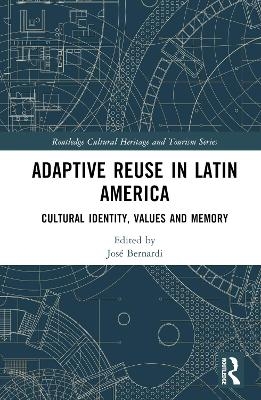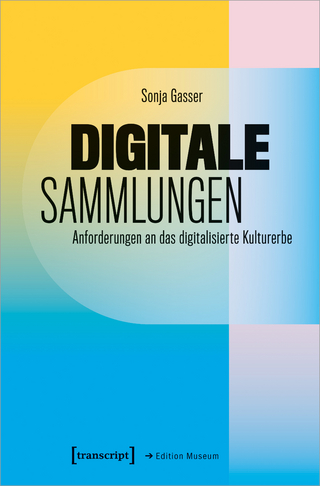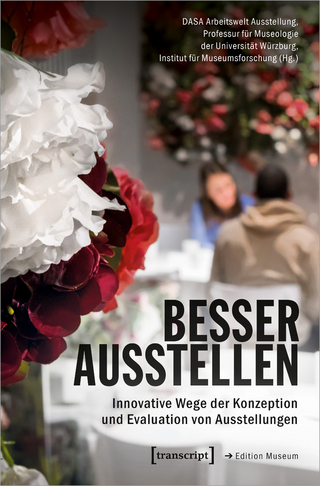
Adaptive Reuse in Latin America
Routledge (Verlag)
978-1-032-34451-5 (ISBN)
This book seeks to explore the theoretical and architectural connections between memory, values, cultural identity, and adaptive reuse in Latin America. It does so by critically analyzing ideas and works within the context from where they emerge.
With rich and layered historic centers, a wealth of colonial and 19th-century buildings, and the heritage from the modern era, Latin America offers a unique architectural patrimony and its contribution and impact on contemporary culture and architecture still require critical study and discussion. The chapters of this timely book consider the conflicted relationship between colonialism, native cultures, and immigration. It also explores the connections between modern projects and national identity, and contemporary interventions serving the needs of diverse societies while being cultural receptacles of memory. While most books on adaptive reuse focus on the larger general concepts, different technical approaches, and case studies, this book will contribute to the study of adaptive reuse moving away from Europe and North America, focusing instead on cases in Brazil, Mexico, Argentina, Ecuador, and Peru.
This book is an important resource for researchers and students in the area of architecture, cultural, global, and design studies, heritage, geography, sociology, and history.
José Bernardi is associate professor in The Design School at The Herberger Institute for Design and the Arts at Arizona State University. His work is focused on modern and contemporary design and architecture in Latin America.
Introduction: Expanding and diversifying the field of adaptive reuseJosé Bernardi
Topic I Whose Memories, whose values? The search for identity
1. Whose memories, whose values? Reflecting on the spatial history of the Americas.
Fernando Luiz Lara
2. Open Work as a seed for change in adaptive reuse
Ana Etkin
3. Essential Documentation: Lucio Costa and the Modernist MissionaryCatherine Seavitt Nordenson
4. From a project of modernization to a strategy of community building
Monica Bertolino
Topic II Other Modernities
5. Housing Policies in Brazil and Dwellers perspectives, a Comparative Study
Ana Paula Koury
6. Renovation and reuse in Brazil: Cases in Sao Paulo, Bahia and Porto Alegre
Marta Peixoto
7. Adaptive Reuse in Brazil: Lessons from Lina Bo Bardi
Isabella Trindade, and Ana Luisa Rolim
8. Resilient spaces: modern and historic legacy in Brazilian built heritage
Cláudia Costa Cabral
Topic III Perpetual Transformations: Adaptive Reuse in Mexico City
9. Mexican Iconoclasms: From the Post-Revolutionary Era to the 1980s
Cristóbal Jácome-Moreno
10. Exhibiting Contemporary Art in a Colonial Context at the Ex Santa Teresa in Mexico City
Derek Burdette
11. Cosmologies of Ruins and Ruination: Infrastructures and the Anthropocene
Christopher Morehart
Topic IV Places of Defiance and Resilience
12. How body memory “actualizes” to the architectural heritage the Latin American dwelling as the new public space
Diana Maldonado
13. Hidden Landscapes of Palimpsestic Urban Memories: The Case of Lima, Peru
Kathryn Golda- Pongratz
14. Reversing neo-Plantations: From Guayusa Monocultures to Chakras and Managed Forests in Mushullakta
Ana María Durán Calisto
15. Matachín Codex Complex
Cristóbal Martínez
| Erscheinungsdatum | 07.11.2023 |
|---|---|
| Reihe/Serie | Routledge Cultural Heritage and Tourism Series |
| Zusatzinfo | 2 Tables, black and white; 2 Line drawings, black and white; 49 Halftones, black and white; 51 Illustrations, black and white |
| Verlagsort | London |
| Sprache | englisch |
| Maße | 156 x 234 mm |
| Gewicht | 453 g |
| Themenwelt | Kunst / Musik / Theater |
| Reisen ► Reiseführer | |
| Geisteswissenschaften ► Geschichte ► Hilfswissenschaften | |
| Naturwissenschaften ► Biologie ► Ökologie / Naturschutz | |
| Technik ► Architektur | |
| ISBN-10 | 1-032-34451-2 / 1032344512 |
| ISBN-13 | 978-1-032-34451-5 / 9781032344515 |
| Zustand | Neuware |
| Haben Sie eine Frage zum Produkt? |
aus dem Bereich


